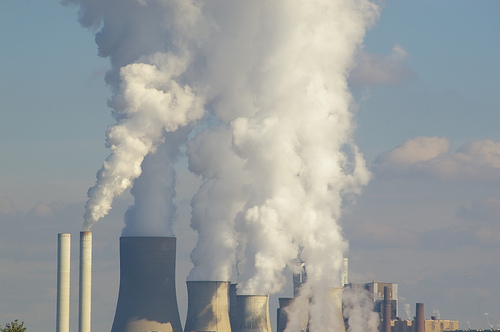Download this one-pager in PDF.
Not Our Problem? Think Again.
Here in the Northwest coal often feels like someone else’s problem, since much of the state’s electricity comes from carbon-free hydropower. But the truth is that coal is big in Washington. The Canadian-owned TransAlta plant near Centralia is the state’s only coal-fired power plant, but it’s a major source of dangerous pollution. Several bills now stand before the state legislature that would speed the phase-out of dirty coal for good.
Coal is outdated, unhealthy, and unnecessary for Washington.
Coal poses a threat to human health by polluting air and water. In fact, coal is the dirtiest fossil fuel, responsible for a disproportionate share of the nation’s smog, heavy metals pollution, and climate warming emissions.
But there’s good news; Washington doesn’t need coal-fired power to supply electricity to our homes and businesses. Existing and proposed natural gas power could nearly replace all the TransAlta plant’s electricity. In fact, the plant’s Canadian owner has been engaged in negotiations with Governor Gregoire to shut the plant down by 2025. But waiting that long only prolongs unnecessary pollution—and does not ensure accountability for TransAlta to clean up the mess or support the community’s transition.
Legislation is now under consideration in Olympia that could transition the plant off coal sooner. A proposed decommissioning fee would ensure accountability for TransAlta, including site clean-up and support for the community’s transition to new industries and good, local jobs.
How Big is Washington’s Coal Secret?
Washington only has one coal-fired power plant, but its impacts are significant. The TransAlta coal plant is the single biggest source of carbon emissions in Washington State—responsible for about 11 percent of the state’s carbon dioxide emissions— and costs the state $4 million through tax loopholes every year. It was also responsible for 400-500 pounds of mercury pollution in recent years—a neurotoxin that’s particularly dangerous to children even in minuscule amounts.
Washington State has been a leader in efforts to curb climate change and build a thriving clean energy economy, committing to cutting global warming emissions 25 percent below 1990 levels by 2035. Phasing out coal at the TransAlta plant, would be equivalent to eliminating the carbon pollution from every car and truck on the road in King, Yakima, Lincoln, Columbia, and Garfield counties combined. In one move, Washington State can make big progress cleaning up our energy portfolio.
More resources:







